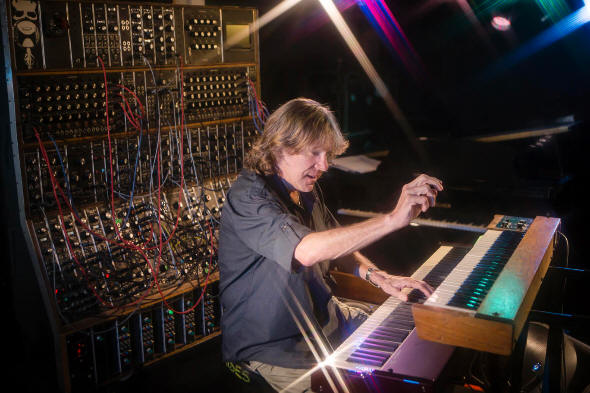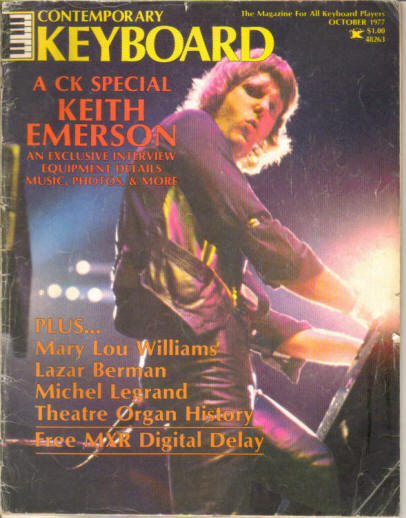|

IN MEMORIAM:
KEITH EMERSON
Keith Emerson
profoundly touched the lives of countless musicians over the
years. As various colleagues have shared thoughts about him in
the wake of his suicide, I'll join the chorus with my two cents'
worth.
Without my exposure
to his innovative, trailblazing work, I wouldn't have pursued
music professionally, discovered and embraced the music of other
progressive artists, or attended music schools.
My growing up with a
background of classical, jazz and rock that often seemed
incompatible with each other, Keith's blending of them unlocked
a creative door for me. Although his composing influenced the
direction of some of my earlier writing, it was his playing and
merging of genres that particularly inspired me. Well beyond
his pioneering role in the application of synthesizers, he was a
musical guide to broader, creative possibilities.
Many observers, some
close to Emerson, have tried to explain or understand what
caused him to take his life. But in the end, it is still
difficult to fathom or accept. Not every detail of his physical
illness, depression, and financial and medical circumstances is
publicly known, nor are they any of my business. Yet they surely
factored into his final mindset even more than frustrations
about his impairment as a keyboardist reportedly did. To
whatever extent other details regarding his condition are
disclosed, perhaps they will contribute to helping others
similarly afflicted or seeking to treat such cases.
Despite inconsistent results throughout his career,
"perfectionism" has been a recurring characterization of
Emerson's approach to his work, right up to his final days, when
he'd been preparing for an upcoming concert tour. And, by
all appearances, his work was his life. Although perfectionism
may be an overly simplistic observation, it is easy to imagine
that the high bar he set for himself and his audience –
especially earlier in his career – that guided his artistic
vision made his later impairment and coinciding professional
pressures and expectations all the harder to bear. Indeed, he'd
already bore them for some time. Yet, to many of us not in his
shoes, his performance flaws and discomfort pale in contrast to
his pivotal impact on music and musicians.
Emerson was hardly alone among
musical icons whose serious health problems in later life impeded their
capacity as performers. Art Garfunkel, Phil Collins and Pete Townshend come
to mind. Yet each managed to find some way to cope that ultimately provided
a new lease on professional life. Emerson's talent and insight certainly
transcended his active playing but, sadly, other factors undermined such
prospects for him.
It is at least a small comfort, or blessing, to continue to
celebrate and draw inspiration from his legacy, influence and
creative spirit. Fortunately – or hopefully – those
contributions will define him more than how or why his life
ended.
Carry on,


|